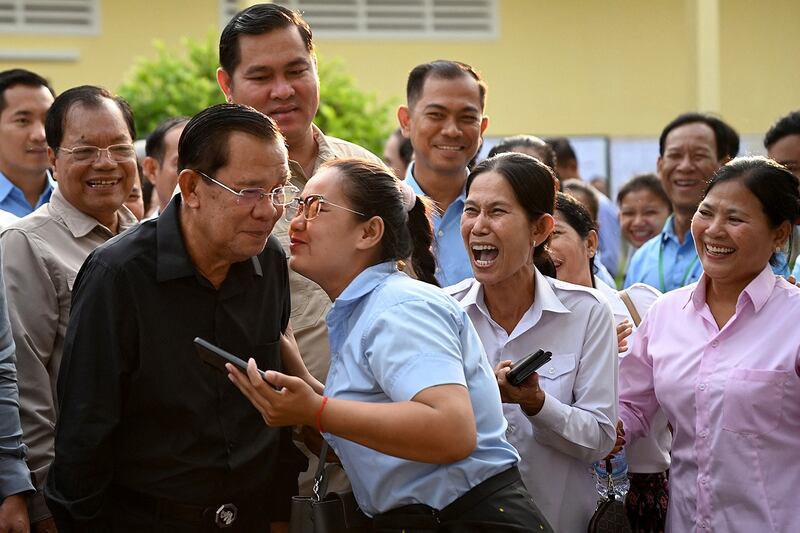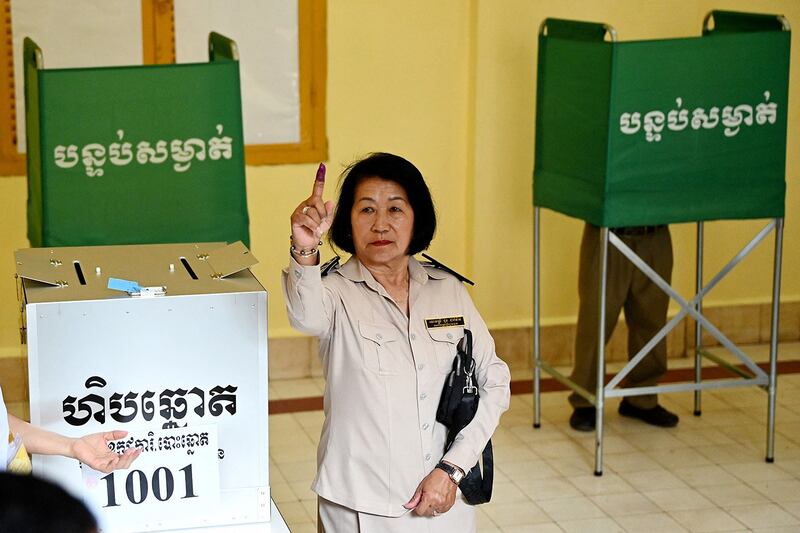The ruling Cambodian People’s Party won 55 of 58 seats in Sunday’s Senate election in an unsurprising result that will allow former Prime Minister Hun Sen to become president of the body.
The Khmer Will Party won three seats, according to the National Election Committee, or NEC.
The small, pro-democracy party is one of several parties that have sought to gain support in recent months after the main opposition Candlelight Party wasn’t allowed to compete in last year’s National Assembly election.
Only members of Cambodia’s 11,622 local commune councils and members of the National Assembly were allowed to cast votes in the election. The CPP holds 120 of the Assembly’s 125 seats and also holds the large majority of seats on the commune councils.
The last commune elections were held in 2022, with the Candlelight Party winning 22 percent of votes.
Many of those councilors voted for the Khmer Will Party in Sunday’s Senate election, according to exiled opposition leader Sam Rainsy. However, some Candlelight Party councilors have been pressured over the last year to switch their allegiance to the CPP, he said.

CPP spokesman Sok Ey San dismissed Rainsy’s comments, saying “there were no problems” with the election.
“We see that the preliminary election results have already been made public by the NEC,” he told Radio Free Asia. “We are happy with the decision of the electorate.”
The royalist Funcinpec Party and the newly formed National Power Party also competed on Sunday.
Acting head of state
The Senate is designed to act as a check on the Assembly, but in practice it is essentially a rubber stamp body.
However, the president of the Senate acts as head of state when King Norodom Sihamoni is out of the country. The role will allow Hun Sen to continue to wield influence behind the scenes.
Hun Sen, 71, stepped down as prime minister last August after decades in power, paving the way for his eldest son to be appointed to the position.

Cambodia’s Constitution allows the king to nominate two senators and the National Assembly to nominate another two, with the remaining 58 seats chosen in an election held every six years.
The NEC ruled last May that the Candlelight Party couldn’t field any candidates for the National Assembly in the July election, citing inadequate paperwork. The party’s efforts to fix the issue in September were unsuccessful.
That prompted an announcement in October that the party would join in an "Alliance Toward the Future," with three other smaller political parties, including the Khmer Will Party.
The Khmer Will Party’s secretary general, Kong Monica, said that if all pro-democracy voters had been united, the party could have won at least six seats on Sunday.
Last week, the party's president, Sok Hach, told supporters in Battambang province that the party is already eyeing the 2027 commune elections and the 2028 general election.
Translated by Sum Sok Ry. Edited by Matt Reed and Malcolm Foster.
